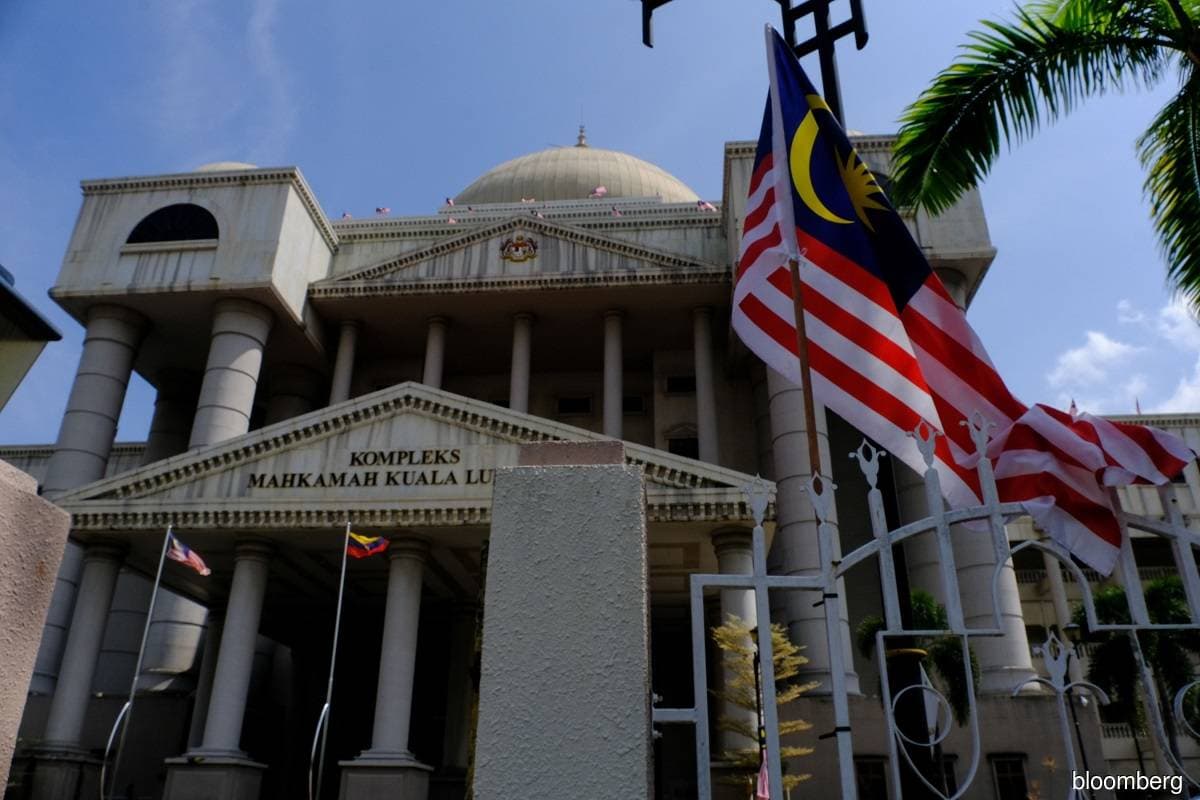
KUALA LUMPUR (June 28): The High Court on Tuesday found a policeman to be liable for unlawfully detaining an activist for 16 days and ruled that due to his actions, the Inspector-General of Police and the government are both vicariously liable to pay for damages to the activist, R Sri Sanjeevan, chairman of the Malaysian Crime Watch Task Force (MyWatch).
Sri Sanjeevan was held by the authorities under the Prevention of Crime Act 1959 (Poca) in July 2016 for an alleged investigation into extortion claims made against him.
Justice Datuk Ahmad Bache said the exemplary and general damages Sanjeevan is due will be assessed later by the court following affidavit evidence to be submitted to his deputy registrar later.
Justice Ahmad also advised the government, represented by senior federal counsel Norfauzani Mohd Nordin, to consider settling an issue out of court in the future if it does not have a strong case, rather than letting the matter go to trial and wasting public money.
"When the case is weak, you should convince the defendants to pursue settlement as this would save judicial time and also public money [of paying costs] due to the wrongdoing of a public servant," he said as he read out the broad grounds of the sentencing in the proceedings conducted online.
Justice Ahmad also awarded a minimum cost of RM40,000 to be paid by the police and the government to Sri Sanjeevan, who was represented by counsels S Preakas and V Satchinathan.
The judge said Sri Sanjeevan's detention for 15 days between July 11 and July 26, 2016 under the Poca had already been deemed unlawful and illegal and declared null and void, with the habeas corpus granted by the court on July 26.
"Although the authorities filed an appeal to the Court of Appeal, it was later withdrawn. This makes the detention still deemed unlawful. There is no reason for this civil court to disagree with the findings made by the criminal court [that granted the habeas corpus] over procedural impropriety and deemed the detention unlawful.
"The defendants filed the appeal but withdrew it and the remand [for 15 days] remained unlawful," the judge added.
Justice Ahmad also ruled Sri Sanjeevan's arrest and initial one-day detention on July 10, 2016 as unlawful, as Poca detention was supposed to be used for organised violence.
He said the criteria set out for detention under Poca are about a person who could cause substantial loss to property or person through organised crime.
"However, there is no evidence to show that Sri Sanjeevan was involved in organised crime. There is no reason for this civil court to disagree with the findings of procedural impropriety and hence the detention is deemed unlawful," he added.
Justice Ahmad also cited the Federal Court case of Nivesh Nair versus then solicitor-general Datuk Abdul Razak Musa, which ruled in April this year that the detention of Nivesh, who was similarly held for two years under Poca — as unlawful.
The apex court allowed Nivesh's habeas corpus appeal after his application was previously rejected by the High Court, and in so doing ruled that Sections 4 and 15B of Poca intruded into the judicial domain and therefore violated the doctrine of separation of powers.
Section 4 outlines the procedures for magistrates in the granting of remand orders to the police, while Section 15B is an ouster clause that restricts judges from inquiring into the grounds for detention.
"The apex court ruled that the judiciary is required to check [such detentions]. This case confirmed the Federal Court's decision that there was some procedural non-compliance which led to the plaintiff's (Sri Sanjeevan) detention being considered unlawful. So this reinforces the case that his detention during remand from July 11 and 26 was deemed unlawful," he added.
The judge also took note of allegations that Sri Sanjeevan had allegedly been beaten while in custody, following the police report he filed and that a police inspector had investigated the case and visited Hospital Kuala Lumpur to check on Sri Sanjeevan, who was brought there to have his alleged injuries assessed.
He said the defendants wanted to call two specialists to deny the allegations but these specialists were not called to testify during the trial and that no pictures were taken by the police inspector. The police photographer assigned to the case was also not called to testify.
"The non-calling of the photographer and specialists for the court to see the seriousness of the injury... with this, the court invokes Section 114g of the Evidence Act to make a finding," he said.
Section 114g stipulates that the court may presume that evidence that could be and is not produced would, if produced, be unfavourable to the person who withholds it.
"With this, it is the decision of this court that it finds the first defendant (police officer) liable in this case and the Inspector-General of Police and government vicariously liable, and the plaintiff is entitled to damages," he ruled.